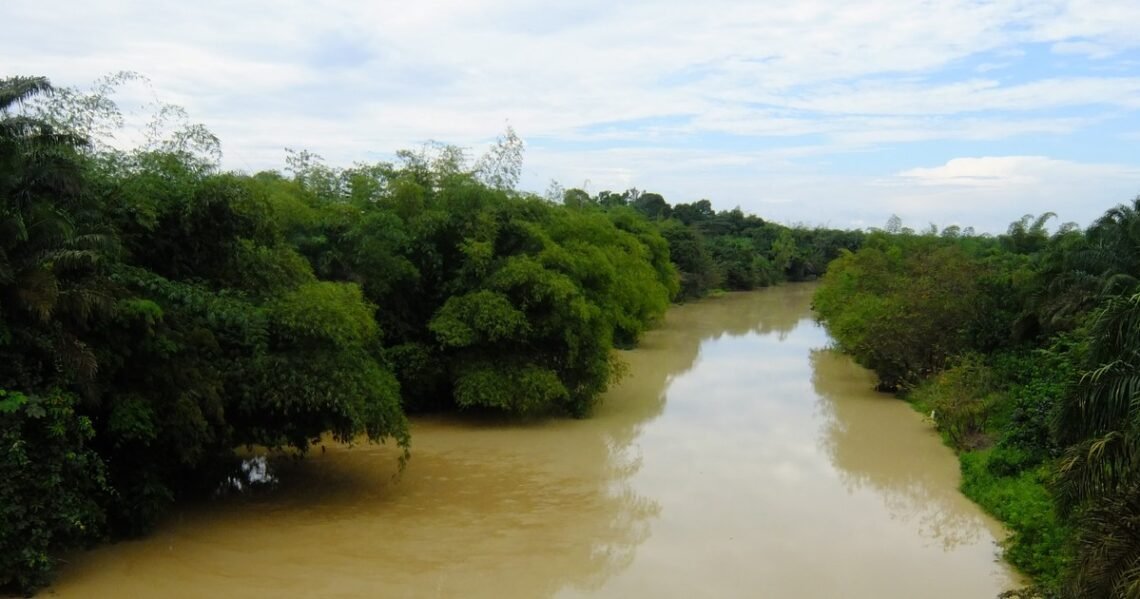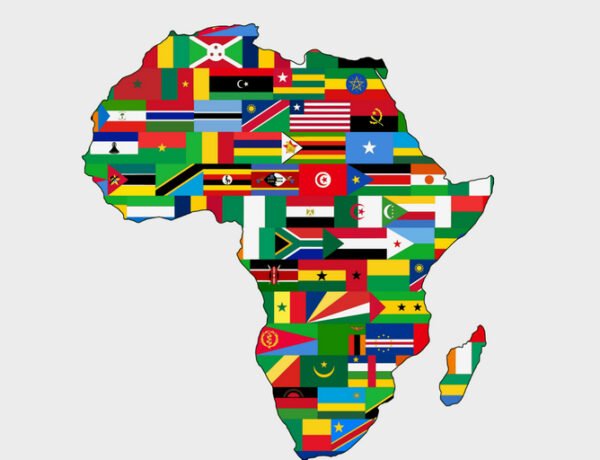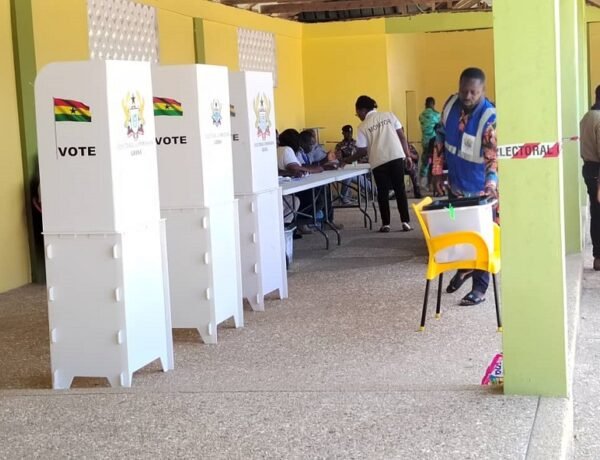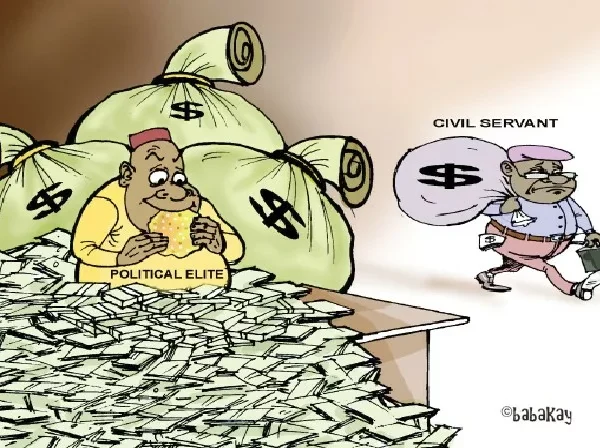Introduction:
Sustainable development (SD) means inclusive growth that protects the earth’s vital resources- such as water, lands, vegetation, biodiversity, forests, minerals and the environment, among many others. Relating this to Ghana, it means achieving national growth that is widely shared by all without prejudicing any section of society, especially the unborn generation. However, with all the laudable political promises and policy formulations by the current New Patriotic Party (NPP) Government and successive regimes to achieve SD in Ghana, the brazen opposite is the story; considering the extensive pollution and destruction of water bodies, streams, rivers, protected sights, forests, cultivable lands and the environment, upon which the people’s livelihood depends. These destructive activities conspire with greed among politicians and leading figures in government to paralyse the economic, social and environment spheres of the Ghanaian society without due regard for the unborn generation. This blogpost examines the three pillars of SD in respect of the extensive pollution of water bodies as a crime against the unborn generation of Ghana.
Short Antecedent
The concept of sustainable development (SD) emerged some twenty-seven (27) years ago through the World Commission on Environment and Development, often labelled the Brundtland Commission (after the chair, Giro Brundtland). Thereafter, the concept was incorporated into three multilateral agreements signed at the Rio Earth summit in 1992, on climate change, biodiversity and desertification. Unfortunately, these three agreements have not achieved their intended objectives of protecting the environment, biodiversity and desertification because of human greed for unbridled economic gains; whilst international law has been feeble to savage these threats. Irrespective of a nation’s status, the three pillars of SD- economics, social and the environment – come sharply into focus because no human activity, survival and progress is possible without a safe and protected environment of which water is crucial constituent. And it is for this reason that all nations, most particularly Ghana. ought to have protect its various water bodies to safeguard the welfare of the current population without jeopardising it for the unborn generation.
Economic Strand
With globalisation occasioned by interconnected of computers, technological advancements, liberalised trade and recently artificial intelligence, vigorous economic activities take place within nations and among nation-states together with multinational corporations. Whereas such enterprises produce enhanced economic benefits to promote growth and welfare of the peoples, they can also undermine the fabric of society by confining local citizens to the periphery of depravity, thereby luring them into activities that are harmful to the environment and water bodies as currently transpiring in Ghana. Also, it unleashes unbridled human drive to exploit mineral resources -Gold, diamond, bauxite and timber, with a view to expanding economic growth and freedom with little or no regard to protecting the environment, especially water bodies. However, these resources are finite and no human existence, be it political, economic or cultural can survive without adequate access to wholesome water supply, thus the current pollution of water bodies in Ghana, inhumanely compromises SD and national economic stability. Without safe sources of water and adequate supply of water to protect the ecology and biodiversity; society, Ghana’s future is threatened enormously.
Social Strand
At the centre of society, humanity is the most critical resource to promote the developmental activities required to drive enterprises, politics and environmental structures of a nation. In the Ghanaian context, people are required as leaders at key vital sectors of the nation to initiate strategic vision-policies that will inspire growth; people are required as farmers, builders, healthcare workers to stabilise the society; and people are needed as families and consumers to patronise the economic activities being produced within and without the nation. However, given that new born babies in some regions of Ghana are defective due to the impact of illegal mining activities, coupled with complicated health challenges, the bottom-line is that the human-capital for the present and future generation is eroding away. This also means that the unborn generation will not only be incapable to manage the country and its resources, but will also face a depleted country without a healthy environment and wholesome water resources. The argument is that the aggressive plunder of Ghana’s environment, forest reserves and wanton pollution of water bodies within farming communities and fishing regions across the country, is a crime against the current and future generations of Ghana. As a developing nation with majority of the population living in poverty, the persistent leadership failings to stem the illegal mining activities in the country will continue to erode the social and human dignity of all Ghanaians.
Environmental Strand
The environment is critical to every activity – human, politics , manufacturing, industry and tourism, just to mention a few. Yet, the current degradation of the environment, forest lands and protected sights, at the expense of prospecting for mineral resources and illegal mining activities, betray all agreements earmarked to safeguard humanity, especially Ghanaians and their unborn generation. For example, one needs to travel only few kilometres from Accra towards Kumasi, Cape-Coast or Takoradi to recognise the scale of environmental destruction characterising the vegetation, land-surfaces and their physical harmful impacts on the communities affected by such inhuman gestures. Since land is contiguously linked to other communities and countries beyond Ghana’s borders, it is shocking to observe that those occupying political and chieftaincy roles at the local, regional and national levels have been numbed into deaf silence about these unconscionable and criminal activities against the suffering Ghanaians. These are criminal actions against the current and the unborn generations; and, if only the various leaderships have any moral conscience.
A Crime Against the Unborn Generation
One key aspect of Sustainable Development (SD) is to utilise the environment and its vital resources without compromising the needs of future generation. Viewed against that background and the current status of the polluted water bodies, degraded environment and plundered forest reserves, the only sound argument one could advance is a crime against the unborn generation. This is because the current generation, which is composed of the reigning government led by President Nana Addo, together with the entire Ghanaian population, have collaborated to commit environmental crimes that undermine the people’s health and existence. Although the unborn generation have no complicity in these criminal activities, it is obvious that they will bear the brunt of all the health and environmental hazards resulting from the polluted water crisis. Creating health and environmental challenges which threaten the existence, livelihood and economic stability of the future generation through pollution of water resources and degraded forest reserves is a criminal offence anchored in morality and human rights. This is because the current generation, made up of people in the age bracket of 60s, 70s and 80s owe it a duty to ensure that they preserve the water bodies, forest reserves and the environment in a pristine condition for the generation to come. The simple question is: would this generation have survived all these years to engage in the various activities which have made them presidents, successful businesses men/women had the water bodies, forests and the environment been destroyed as currently? The answer is no. Without turning this blogpost into legal treatise, a crime can simply be committed by performing an action or failing to perform a duty as criminal and civil law state. It thus follows that while the executive of Ghana have been neck-deep in these environmental crimes against the current and future generations, majority of the population have also been complicit by failing to act in defence of protecting the vital resources of the country. So, either way, those in authority coupled the public have plotted to paralyse the strands of SD by polluting water sources against the unborn generation.
Concluding Remarks
Self-seeking Ghanaians -especially those leading the current NPP government-ably supported by some ministers and sections of the public – have conspired in pursuit of their personal material wealth in polluting water bodies, destroying forest reserves and the environment through illegal mining activities. Thus, we are living in a dark history that is eroding and damaging the vital resources of the Ghanaian environment for the present and generations unborn. Such acts are not only unconscionable but also mirror the deep-seated avarice operating in the hearts of the Ghanaian leadership to perpetuate environmental crimes against generations unborn. Lastly, a Cree Indian Proverb states that “Only when the last tree had died, and the last river been poisoned and the last fish been caught will we realize we cannot eat money”. Water is our life and the environment our heritage so the public and government owe it a national duty to protect them.




